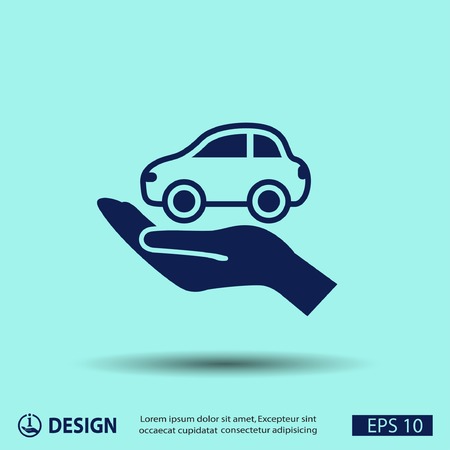1. How to Dispute an Uninsured Motorist Claim Denial
1. Understand the Reason for Denial
Before you take any further action, its important to understand why your uninsured motorist (UM) claim was denied. The first step is to carefully review the denial letter from your insurance company. This letter should outline the specific reason your claim was rejected.
Review the Denial Letter
Your insurer is required to provide a written explanation for denying your claim. Common reasons for denial may include:
| Reason for Denial | Description |
|---|---|
| Lack of Coverage | Your policy may not include uninsured motorist (UM) coverage, or it may not apply to the situation. |
| Missed Deadline | Claims must be filed within a certain timeframe. Missing this deadline could result in denial. |
| Insufficient Evidence | The insurer may claim that you did not provide enough proof that the other driver was uninsured and at fault. |
| Policy Exclusions | Some policies have exclusions that limit coverage under certain conditions. |
Check Your Policy Details
Review your insurance policy to ensure you understand the terms and coverage limits. Look for sections related to uninsured motorist coverage, exclusions, and claim filing requirements. If you are unsure about any terms or clauses, consider reaching out to a legal professional or your insurance agent for clarification.
Compare the Denial Letter with Your Policy
After reviewing the denial letter and your policy, compare them to see if the insurers reasoning aligns with your policy terms. If there is a discrepancy, you may have grounds to dispute the denial. Keep detailed notes of any inconsistencies you find, as they will be useful if you need to challenge the decision.
2. Gather Supporting Evidence
When disputing an uninsured motorist claim denial, having strong supporting evidence can make a significant difference. Proper documentation helps prove your case and increases your chances of overturning the denial. Below are key pieces of evidence you should collect:
Police Reports
A police report can serve as an official record of the accident, detailing what happened and who was involved. If law enforcement responded to your accident, request a copy of the report. It may contain important information such as officer observations, statements from those involved, and potential contributing factors.
Witness Statements
Testimonies from individuals who saw the accident can provide additional credibility to your claim. If there were any witnesses, gather their contact information and request written or recorded statements. Their unbiased perspective can help support your version of events.
Medical Records
If you sustained injuries due to the accident, medical records are crucial. Obtain documentation such as doctor’s reports, hospital records, treatment plans, and medical bills. These records can demonstrate the severity of your injuries and their connection to the accident.
Other Supporting Evidence
Beyond police reports, witness statements, and medical records, additional evidence can help establish your claim. Consider the following:
| Type of Evidence | Description |
|---|---|
| Photos and Videos | Capture images of the accident scene, vehicle damage, road conditions, and any visible injuries. |
| Repair Estimates | Get repair quotes from multiple mechanics to show the extent of vehicle damage. |
| Correspondence with Insurance | Keep records of emails, letters, and phone call summaries related to your claim. |
| Accident Journal | Write down details about the accident, including how it happened and its impact on your daily life. |
Collecting and organizing this evidence can help you make a strong case when disputing your uninsured motorist claim denial. Make copies of all documents and keep them in a secure place for reference during the dispute process.

3. Communicate with Your Insurance Company
After receiving a denial for your uninsured motorist claim, your next step is to reach out to your insurance company. Discussing the decision with them directly can provide you with a clearer understanding of why your claim was denied and what steps you can take to dispute it.
Contact Your Insurer
Start by calling or emailing your insurance provider’s claims department. Ask for a detailed explanation regarding the denial. Sometimes, the reason could be a simple clerical error or missing paperwork. Keeping a record of your conversations, including the date, time, and representative’s name, can be useful for reference later.
Provide Additional Documentation
If the insurance company denied your claim due to a lack of evidence, gather any additional documentation that could support your case. The following table outlines common documents that may help strengthen your claim:
| Type of Document | Purpose |
|---|---|
| Police Report | Provides an official record of the accident and fault determination |
| Medical Records | Demonstrates the extent of your injuries and related expenses |
| Photos or Videos | Shows damage to your vehicle and accident scene details |
| Witness Statements | Offers third-party accounts to support your claim |
| Correspondence with Insurer | Documents communication with your insurance provider |
Request a Re-evaluation
Once you have gathered additional evidence, submit it to your insurance provider and formally request a re-evaluation of your uninsured motorist claim. Clearly explain why you believe the denial was improper and reference any policy provisions that support your case.
Stay Persistent and Follow Up
Insurance claims can take time to process, so it is essential to follow up regularly. Make sure your insurer is actively reviewing your case and ask for updates on the reconsideration process. If needed, escalate your claim by requesting a supervisor or claims manager to review it.
4. File a Formal Appeal
If your uninsured motorist claim has been denied, you have the right to file a formal appeal. This step involves submitting a written appeal with all relevant supporting documents and clearly outlining why the denial should be reconsidered.
How to Submit a Strong Appeal
1. Review the Denial Letter
Carefully go through the insurance companys denial letter to understand the specific reasons why your claim was rejected. Identifying their reasoning will help you address the issue effectively.
2. Gather Supporting Documents
To strengthen your appeal, collect all necessary documents that support your argument. These may include:
| Type of Document | Purpose |
|---|---|
| Police Report | Verifies details of the accident |
| Medical Records | Shows injuries and treatment received |
| Witness Statements | Provides third-party accounts of the incident |
| Photos and Videos | Visual evidence of the accident scene |
| Repair Estimates | Demonstrates vehicle damage costs |
3. Write a Clear and Concise Appeal Letter
Draft a formal appeal letter addressing the insurance company. Your letter should include:
- Your policy number and claim reference
- A summary of the accident
- Reasons why you believe the denial is incorrect
- Reference to any policy terms that support your claim
- A request for reconsideration
4. Submit the Appeal
Send your appeal letter and supporting documents to the correct department at your insurance company. Confirm the submission method—whether by email, fax, or certified mail—to ensure they receive it.
5. Follow Up Regularly
After submitting your appeal, follow up to check on its status. Keeping regular contact with your insurance company can help expedite the review process.
5. Five. Seek Legal Assistance if Necessary
If your appeal is unsuccessful, consider consulting an attorney who specializes in insurance disputes. A legal expert can help you understand your rights and assess whether you have a strong case against the insurance company. They can also guide you through the legal process to ensure you take the right steps.
When to Involve an Attorney
Not every uninsured motorist claim dispute requires legal intervention, but there are certain situations where hiring an attorney may be beneficial. Consider consulting a lawyer if:
| Situation | Why You May Need an Attorney |
|---|---|
| Your claim is denied without clear explanation | An attorney can help uncover the exact reason for denial and challenge it legally. |
| The insurance company is acting in bad faith | If your insurer is unreasonably delaying or refusing communication, a lawyer can advocate on your behalf. |
| You are unsure of the legal process | A legal expert can guide you through filing a lawsuit or negotiating a fair settlement. |
| You need to file a lawsuit | A lawyer can represent you in court and strengthen your case with legal arguments. |
How to Find the Right Attorney
Not all attorneys specialize in insurance disputes, so it’s essential to find one with the right experience. Here are a few steps to help you choose the best legal representation:
- Look for insurance dispute specialists: Search for attorneys who focus on auto insurance claim denials.
- Check reviews and testimonials: See what past clients have said about their experiences.
- Ask about fees: Many insurance lawyers work on a contingency basis, meaning they only get paid if you win.
- Schedule a free consultation: Many lawyers offer an initial meeting at no cost to discuss your case.
What to Expect from a Legal Consultation
During your first meeting with an attorney, they will review the details of your case and provide an assessment of your chances. Be prepared to provide any correspondence with the insurance company, evidence related to your accident, and details of your denied claim.
If the lawyer believes you have a strong case, they may suggest filing a lawsuit or negotiating with the insurer on your behalf. They will also explain the potential timeline and costs associated with legal action.


